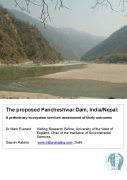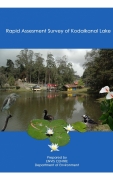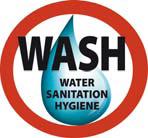/topics/citizens-rights-and-duties
Citizens' Rights and Duties
Floods, drinking water contamination, mining and waterbodies, water bills, water conflicts - News roundup (1-7 August 2010)
Posted on 07 Aug, 2010 04:51 PMFloods: lessons to be learnt from the massive flooding in Surat city
A report by IIM criticises the way in which dams are managed in the country and calls for the need to apply Management Science / Operations Research techniques and information technology to improve dam management and prevention of floods
State of MGNREGS in Bundelkhand - A report by Centre for Environment and Food Security (2010)
Posted on 06 Aug, 2010 11:05 PMThis report describes the findings of a rapid survey conducted by Centre for Environment and Food Security (CEFS) to evaluate the performance of the Mahatma Gandhi National Rural Employment Guarantee Scheme (MGNREGS) in the 50 poorest dalit villages of Bundelkhand region of Uttar Pradesh. The rapid survey was conducted in the districts of Chitrakoot, Banda, Mahoba, Jhansi and Lalitpur.
Groundwater and well water quality in alluvial aquifer of Central Gujarat - A paper by CAREWATER
Posted on 03 Aug, 2010 08:58 PM The report by Carewater INREM Foundation deals with groundwater and well water quality in the alluvial aquifers of Central Gujarat. Gujarat has a hydrogeology representative of almost all aquifer types and depositional & formation eras. Contamination of aquifers along with scarcity of groundwater resources due to increase in water demand and reduction in recharge of groundwater from changing landuse, is a problem in Central Gujarat.
The report by Carewater INREM Foundation deals with groundwater and well water quality in the alluvial aquifers of Central Gujarat. Gujarat has a hydrogeology representative of almost all aquifer types and depositional & formation eras. Contamination of aquifers along with scarcity of groundwater resources due to increase in water demand and reduction in recharge of groundwater from changing landuse, is a problem in Central Gujarat.
UN affirms the right to safe and clean drinking water
Posted on 02 Aug, 2010 02:56 PMA remarkable piece of water history should have been headline news everywhere this week.
Deaths due to water pollution
Posted on 02 Aug, 2010 02:38 PMDeaths due to water pollution occur mainly as a consequence of drinking of contaminated water. The common diseases caused by consumption of contaminated water are Cholera, Viral Hepatitis, Enteric Fever (Typhoid) and Acute Diarrhoeal Diseases (ADD).
The number of deaths reported State-wise on account of Cholera, Viral Hepatitis, Enteric Fever (Typhoid) and Acute Diarrhoeal Diseases (ADD) for the years 2007, 2008 and 2009 are given in Annexure – I-III.
India WASH forum e-newsletter - Update 13 July 2010
Posted on 02 Aug, 2010 11:56 AMWe see this newsletter as a platform for independent credible voice in the water and sanitation sector. Our emphasis is on bringing together critical news and information with analysis. In this issue we share news and analysis on topical issues and developments.
The Department of Drinking Water and Sanitation(DDWS) has simultaneously invited inputs to Discussion Papers on Drinking Water and Sanitation, circulated on Solution Exchange. Inputs given by India WASH Forum, on this, is enclosed in this Update. We have pointed out the missing elements of sanitation improvement strategy that include, criticality of providing water as an inseparable component to household sanitation, the tendency to see behavior change as a lifestyle issue and not linked to the hardware components, peoples livelihoods and living conditions. Suggestions for what needs to be done to strengthen the implementation mechanism of the flagship sanitation programme(TSC) and partnerships.
A preliminary ecosystem services assessment of likely outcomes of the proposed Pancheshwar dam in India/Nepal - An IES report (2010)
Posted on 02 Aug, 2010 02:24 AM This report by the IES presents the findings of a study that explores the likely impacts of the recent proposals in India to build a dam at Pancheshwar in the Himalayas on the river ecosystems and the surrounding areas and people involved. This dam will be the world's second tallest structure intended to harness hydroelectric power and water by controlling the flow of the Kali river and its tributaries.
This report by the IES presents the findings of a study that explores the likely impacts of the recent proposals in India to build a dam at Pancheshwar in the Himalayas on the river ecosystems and the surrounding areas and people involved. This dam will be the world's second tallest structure intended to harness hydroelectric power and water by controlling the flow of the Kali river and its tributaries.
The document argues that although there are many benefits of the dam in terms of energy and water, the wider ramifications of the dam and its consequences for the people staying around the area have not been thought about in the planning process. The planning process has not engaged local people in the decision-making process, there is paucity of published information and the environmental and social consequences have been considered belatedly in the planning process.
Rapid assessment survey of Kodaikanal lake - ENVIS Centre (TN) (2009)
Posted on 02 Aug, 2010 02:02 AM This document by the Department of Environment, Government of Tamil Nadu highlights the importance of the Kodaikanal lake as an important tourist destination and warns that this freshwater lake is under the threat of getting polluted and its biodiversity endangered.
This document by the Department of Environment, Government of Tamil Nadu highlights the importance of the Kodaikanal lake as an important tourist destination and warns that this freshwater lake is under the threat of getting polluted and its biodiversity endangered.
The document presents the findings of the study that aimed at assessing the physico-chemical and biological quality of the Kodaikanal lake.
Evidence indicates that unrestricted tourism activities have led to high use of plastic bottles, glass bottles, plastic bags, causing high levels of pollution and silting of the lake. Damaged fibreglass boats left inside the lakes also pose a serious threat to the lake ecosystem.
Climate change in India: Forgotten threats, forgotten opportunities - EPW paper
Posted on 02 Aug, 2010 01:12 AMThe document begins by commenting on the position taken by India in the global climate change discourse. India has consistently argued from the point of view of developing countries against restrictions on emissions that have been imposed on all countries globally, by stating that developing countries have started the industralisation processes recently and thus have contributed very little to the carbon emissions.
Thus, countries like India should not sacrifice their present development and growth for reducing global emissions. Any legitimate climate mitigation initiative should be just, equitable and secure developing countries' growth patterns.
The document argues that although India 's stand seems justifiable in the global discourse, the climate change issue is still a very sensitive one for India and India has the greatest to lose if it does not take proactive steps to deal with the issue of climate change in the future.
Salvaging and scapegoating: Slum evictions on Chennai’s waterways - EPW paper
Posted on 02 Aug, 2010 01:03 AMThe paper highlights the case of recent projects that have been planned on the river Cooum in Chennai.






